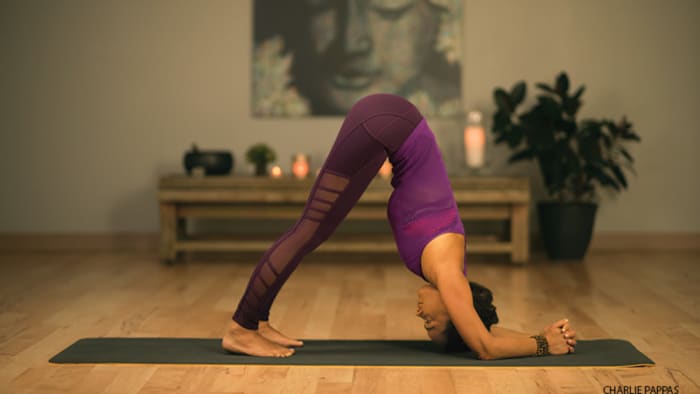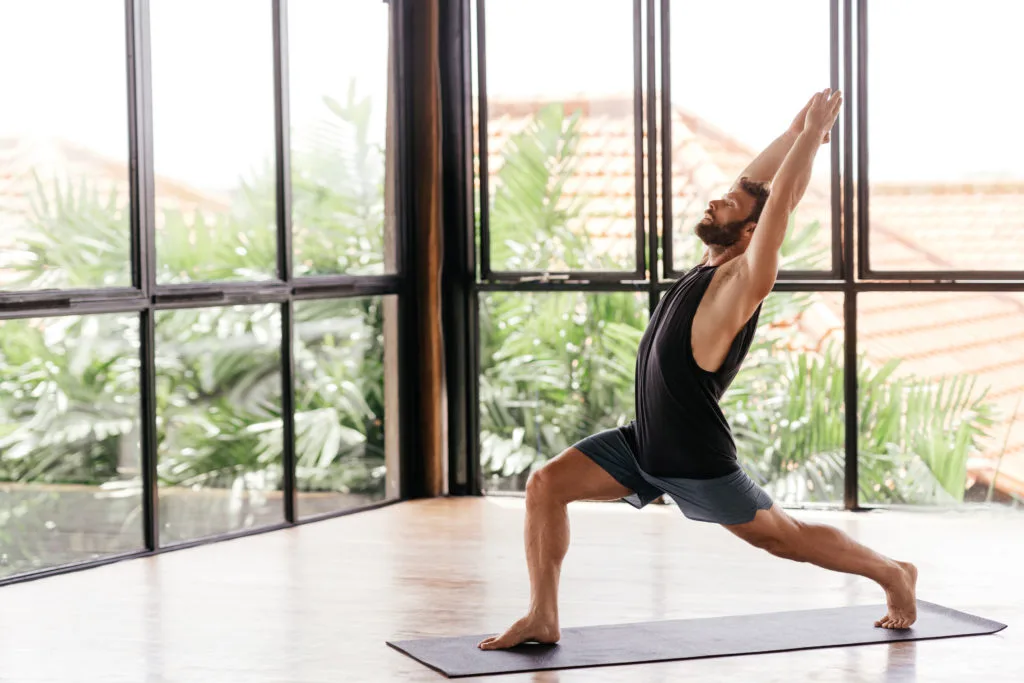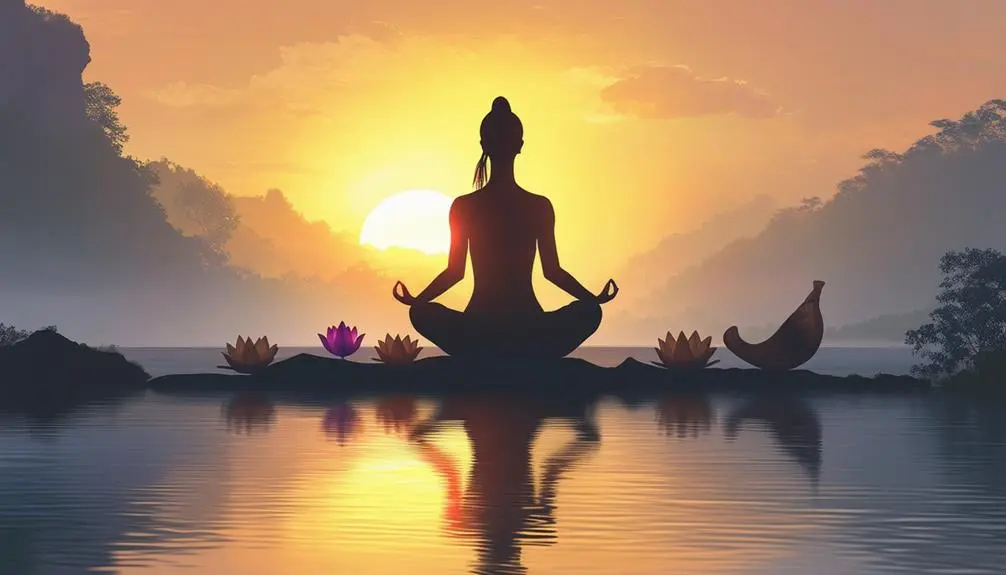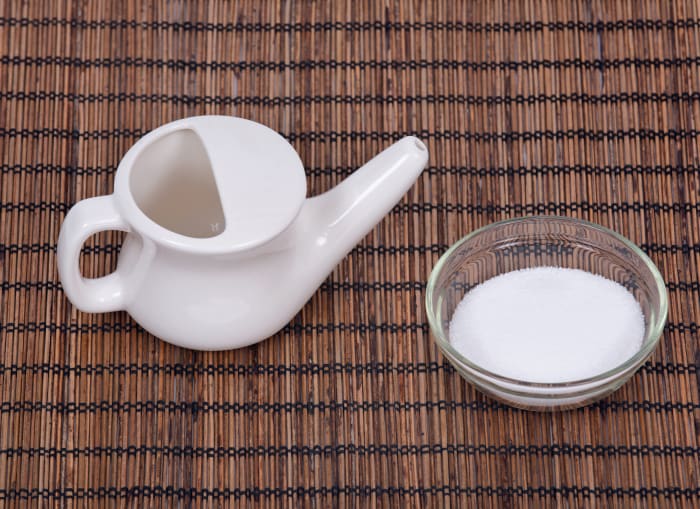By now you’re getting office notices about staying home if you so much as sneeze, or suspicious side-eyes when you stifle a cough on the subway during rush hour. Your pantry may be stocked with extra pasta, toilet paper, and Purell. Plus, that event you were planning on this weekend just got cancelled. It’s hard to avoid the noise and notifications as we contemplate the threat of a pandemic. According to the latest news reports, more than 89,000 people worldwide have been infected by a novel coronavirus, which causes a highly contagious respiratory disease named COVID-19. And we’re starting to see confirmed cases, community spread, and six fatalities (at press time) accrue stateside.
We can expect the number of infections in the U.S. to rise—possibly along with our anxiety about what’s to come. But the stress related to uncertainty, anticipation, and fear can also wreak havoc on our health, so we reached out to Ayurvedic, yoga, and mindfulness teachers to help us get a handle on how our practice can fortify our bodies and minds, which may help give us an edge to ward off the common cold, flu, and, yes, coronavirus. “It’s all about keeping stress levels low and your immune system healthy,” says Larissa Hall Carlson, an Ayurvedic Practitioner and the former dean of the Kripalu School of Ayurveda. Here, she and other experts share their top tips for staying healthy.
Tips For Optimizing Your Immune System
1. Gargle warm saltwater and use a neti pot. These ancient Ayurvedic strategies—dissolving about ½ tsp. Himalayan or sea salt in 8 oz. of warm water—is “non-negotiable” if you are trying to prevent sickness, says Hall Carlson. Germs and bacteria hang out in your nose and throat 24 hours before digging into your blood stream and affecting your immunity, she explains, and salt clears them out. You can use these saltwater rinses as preventative measures or when you start to feel sick.
See also Ayurveda 101: 6 Ways to Prevent Colds and Flu
2. Sleep it off. “A balanced circadian clock (or your internal time-keeping for cycles of sleep and alertness) is directly linked to a strong immune system, according to Ayurveda, and now Nobel Prize-winning science,” explains John Douillard, best-selling author and founder of LifeSpa.com, which combines ancient Ayurvedic wisdom with modern science. He suggests going to bed two to three hours after sunset and getting up with the sun to help maintain healthy circadian rhythms.
See also 8 Yoga Poses to Sleep Better Tonight
Other ways to get better sleep and boost immunity? Disconnect from the damaging blue light emitted from your screens by wearing blue-light glasses or turning your night filter on 24/7, says Douillard. And avoid big, heavy, late meals, since they are difficult to digest and lead to ama, or undigested food, that can also compromise immunity. Yoga Journal’s Medical Editor Timothy McCall, MD, adds that fear is vata deranging, interfering with sleep and in turn undermining immunity. (According to Ayurvedic thought, vata is like the wind. It's cool, dry, rough, and erratic—and anything with similar properties will tend to increase it. When it is out of balance it’s called vata derangement.)
See also Grounding Tips for Vata Imbalance
McCall recommends using yoga and Ayurveda to build a foundation for immunity: living your life in accordance with the rhythms of nature, sleeping enough, eating food full of prana (or life force), and building ojas, or overall well-being. “Immunity is about how you live your life,” he says. “Our big assignment as yogis is to try to be content and go about our lives as best we can in the face of uncertainty. The reality is that fear puts us in touch with the truth, which is that we can sometimes affect outcomes, but ultimately we don’t have control over what happens to us.”
See also The Stress-Busting Yoga Sequence to Conquer Tension
3. Drink tulsi tea. One of the most revered Ayurvedic herbs, tulsi is known as a stress, fever, and headache reducer and lung clearer, says Hall Carlson. “I don’t go anywhere without it; it’s in my car, bag, and purse.” When viruses like coronavirus take hold, they create problematic respiratory conditions, which tulsi may be able to help soothe, adds Hall Carlson.
4. Supplement. If tulsi isn’t your cup of tea, you can boost immunity and fight immune-compromising fatigue and anxiety with the Ayurvedic super-herb Ashwagandha, says Douillard. He also recommends turmeric as a natural anti-microbial.
5. Breathe deep. Your lungs are your biggest lymph pumps, clearing out clutter and toxins, explains Hall Carlson. She suggests a daily practice of pranayama to mitigate stress and boost immunity. Deep breathing, or complete yogic breath, will do—anything that opens your lungs and side ribs, and keeps things moving.
6. Massage it out. Hall Carlson also recommends daily abhyanga, or self-massage, with organic oils—such as sesame, though olive and coconut work too—to nourish and hydrate skin and settle frazzled nerves. This is a preventative measure only; when you’re sick, your metabolism is trying to process toxins and can get overwhelmed taking on both bugs and heavy oils.
See also Ayurveda 101: 4 Small Changes That Make a Big Difference
7. Take vata-balancing breaks during the day. When you’re feeling scattered and stressed, make sure to take a few minutes, ideally up to 20, for mindfulness practices, walks, quiet sitting, or slow flow or Restorative Yoga, especially toward the end of the day when you’ve put in hours of work and may be pushing your limits, says Hall Carlson. Don’t skimp on Savasana, allowing your nervous system to reset.
McCall warns against overly ambitious yoga when you're in a state of fear and anxiety. “When you’re fearful, Restorative Yoga is not going to work,” he says. “You first need to burn off anxiety with more energetic practices and then you can get to the restorative.” If you feel riled up, he suggests doing a strong practice for 20-30 minutes, avoiding backbends, which can increase vata and fear, then transitioning to more calming practices. “This is also how teachers can help their students ratchet down their nervous systems to a calmer place, by structuring classes this way,” says McCall.
Here is Hall Carlson's slow flow sequence for opening your lungs and helping you stay calm and strong as we head into flu (and coronavirus) season: This Yoga Sequence Will Reduce Stress and Boost Immunity.

Try a slow flow practice that ends with Restorative Yoga poses in order to calm your nervous system and boost immunity.
Charlie Pappas
Craving change but feeling too stuck, sluggish, or restless to take aim? Join John Douillard, founder of LifeSpa.com, and Larissa Hall Carlson, Ayurveda Yoga Specialist, for Ayurveda 201: Six Weeks to Transformation and Bliss Through Ayurvedic Psychology. In this new online course, you’ll experience: unique yoga practices; inspiring discussions backed by science; and recipes, herbs, and a short, gentle cleanse. Sign up today!









